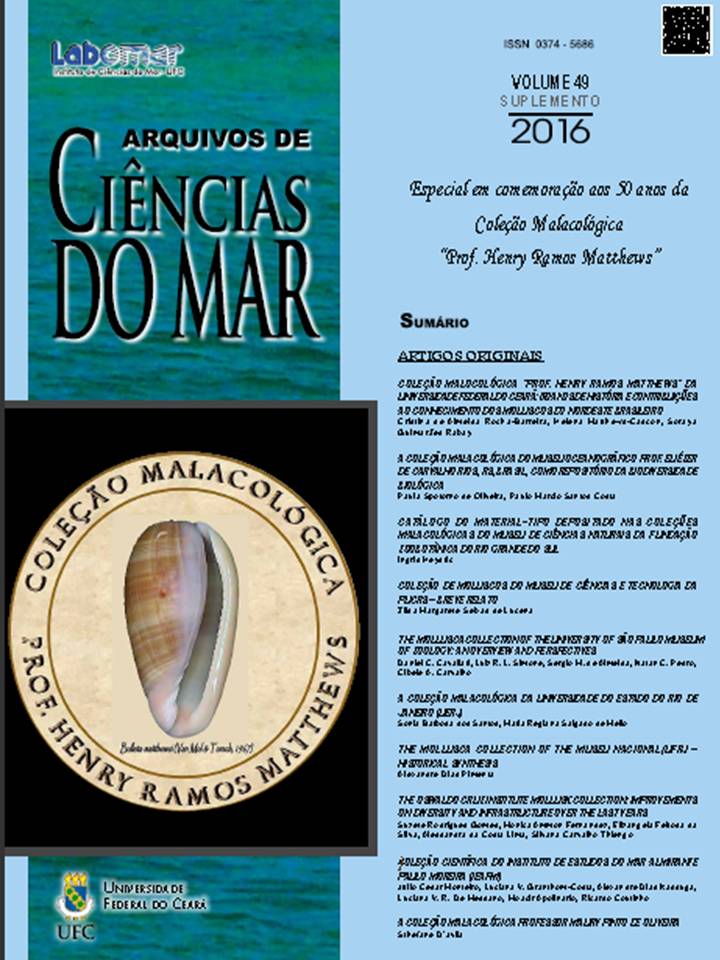The malacological collection of the Oceanophaphic Museum Prof. Eliézer de Carvalho Rios, RS, Brazil, as repository of biological biodiversity
DOI:
https://doi.org/10.32360/acmar.v49i0.6122Keywords:
Biological collection, Malacology, Biodiversity, Museum.Abstract
Biological collections are important source of information and testimonies of biodiversity, allowing for the development of existing and future research. In addition to the spread of specialized knowledge to the scientific community, the scientific collections are of great importance for the education of the general public, supporting elementary to graduate level activities, such as environmental education programs. The maintenance of such collections aids in the conservation of threatened species by increasing public awareness for environmental issues and preservation of biodiversity. Museums are suitable locations for the storage, maintenance and presentation of biological collections. Over the last five decades, the Oceanographic Museum Prof. Eliézer de Carvalho Rios received global recognition for housing a reference collection of wide geographic outreach, assembling more than 52,000 lots of samples. Given both its numerical and qualitative representativity, it plays an important role in preserving biological heritage, and deserves mention as a repository of biological biodiversity of marine molluscs in Brazil.Downloads
Published
2017-02-13
Issue
Section
Artigos originais
License
1. Proposta de Política para Periódicos de Acesso Livre
Autores que publicam nesta revista concordam com os seguintes termos:
- Autores mantém os direitos autorais e concedem à revista o direito de primeira publicação, com o trabalho simultaneamente licenciado sob a Licença Creative Commons Attribution que permite o compartilhamento do trabalho com reconhecimento da autoria e publicação inicial nesta revista.
- Autores têm autorização para assumir contratos adicionais separadamente, para distribuição não-exclusiva da versão do trabalho publicada nesta revista (ex.: publicar em repositório institucional ou como capítulo de livro), com reconhecimento de autoria e publicação inicial nesta revista.
- Autores têm permissão e são estimulados a publicar e distribuir seu trabalho online (ex.: em repositórios institucionais ou na sua página pessoal) a qualquer ponto antes ou durante o processo editorial, já que isso pode gerar alterações produtivas, bem como aumentar o impacto e a citação do trabalho publicado (Veja O Efeito do Acesso Livre).

